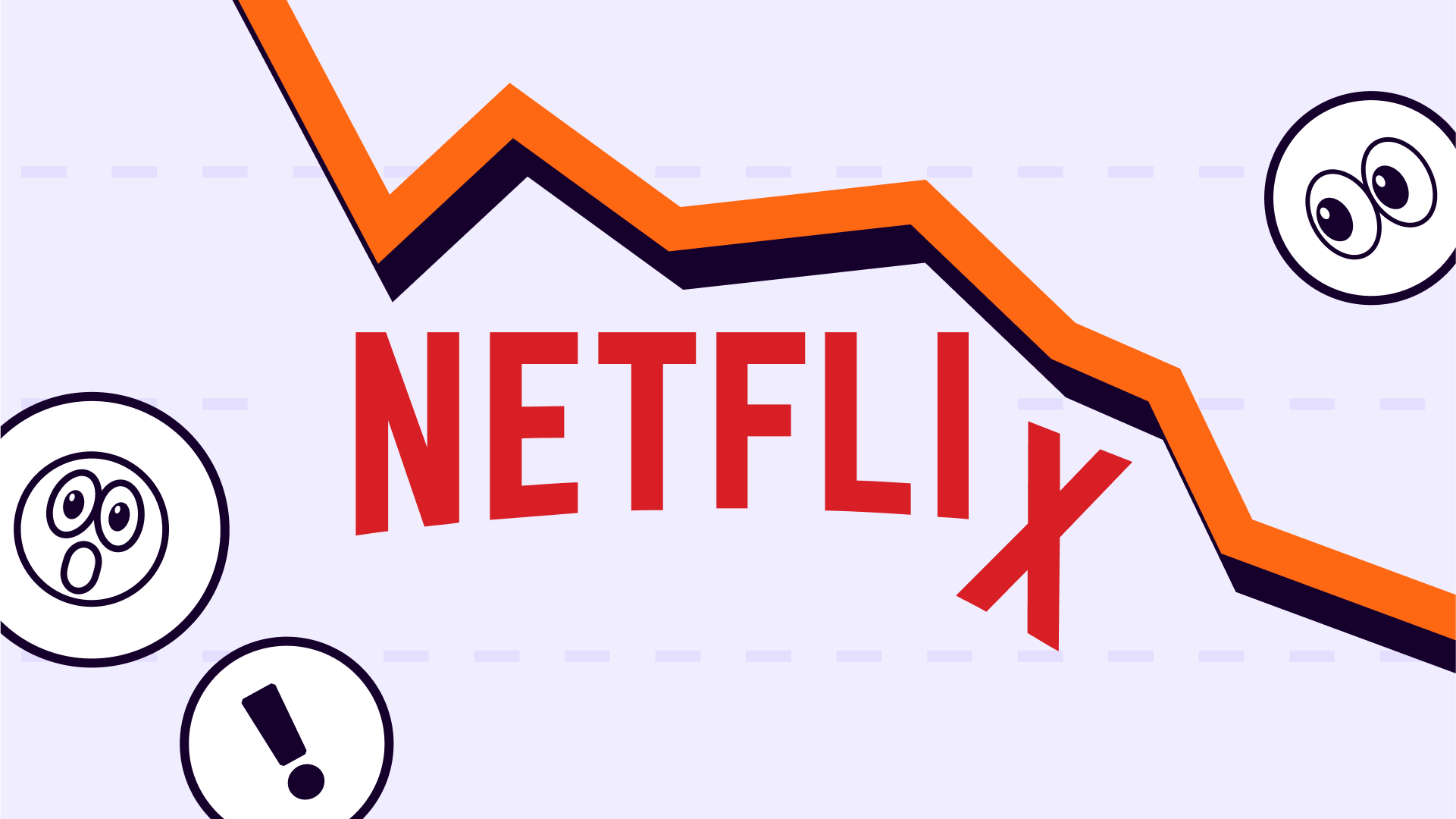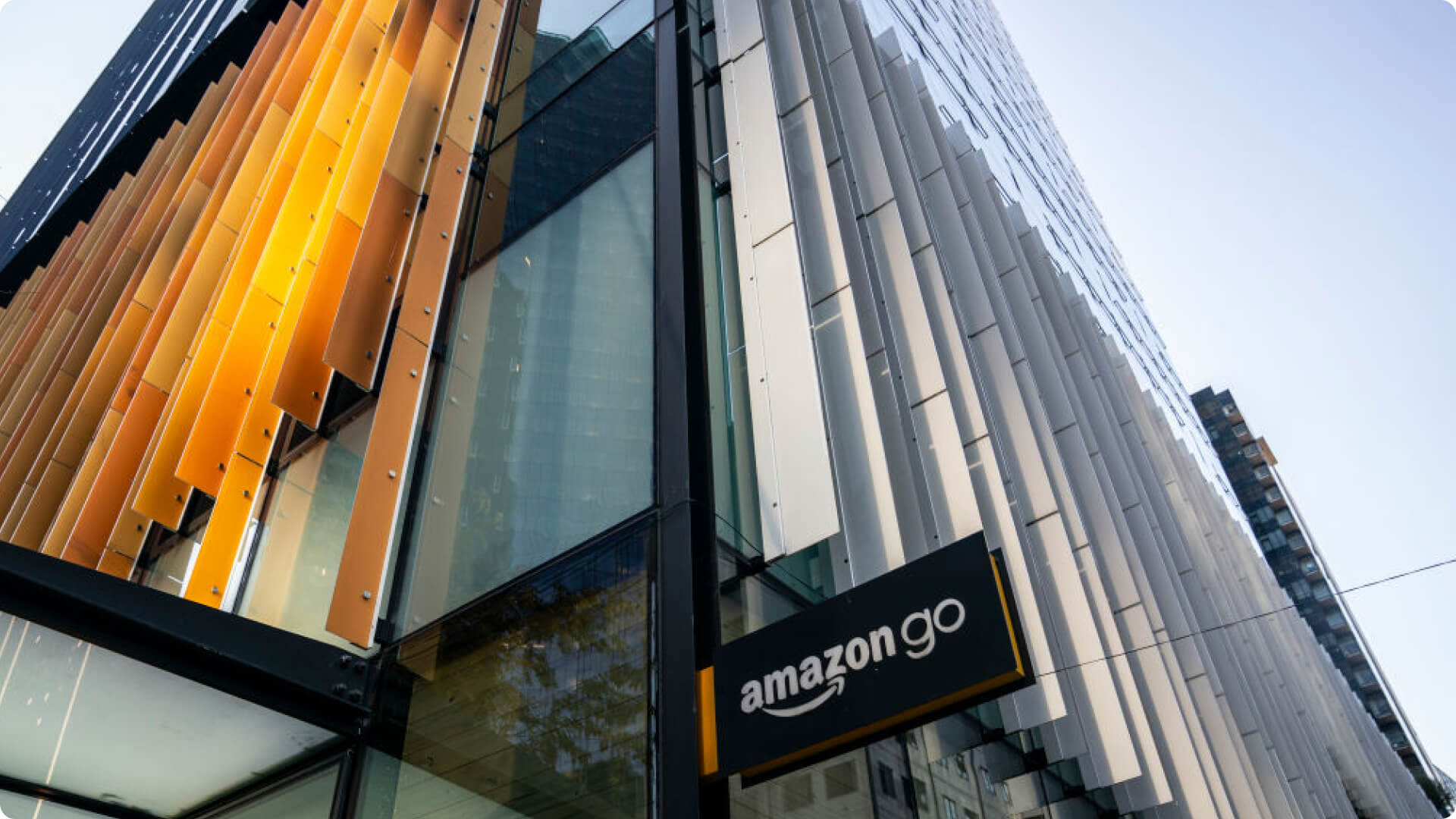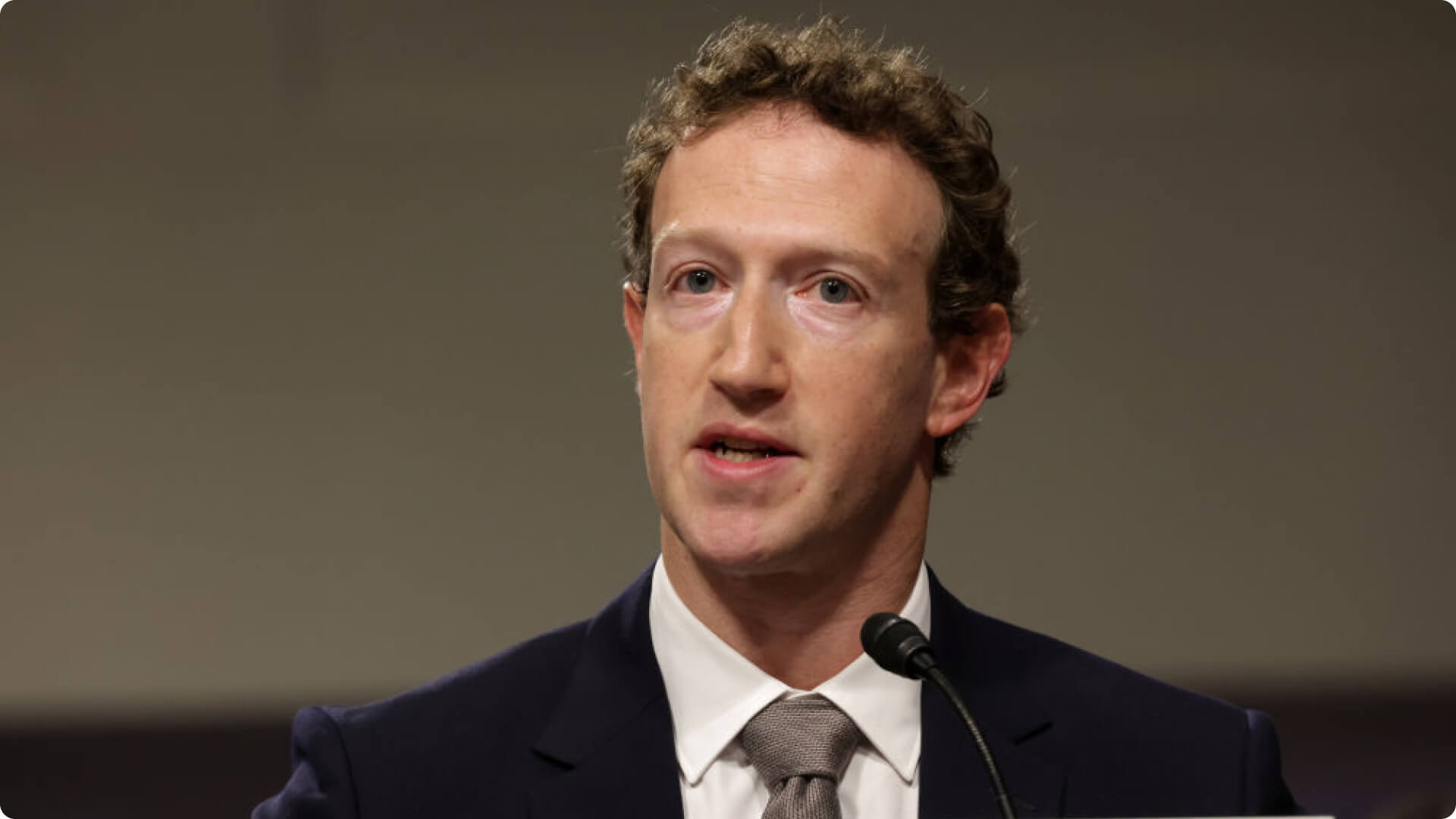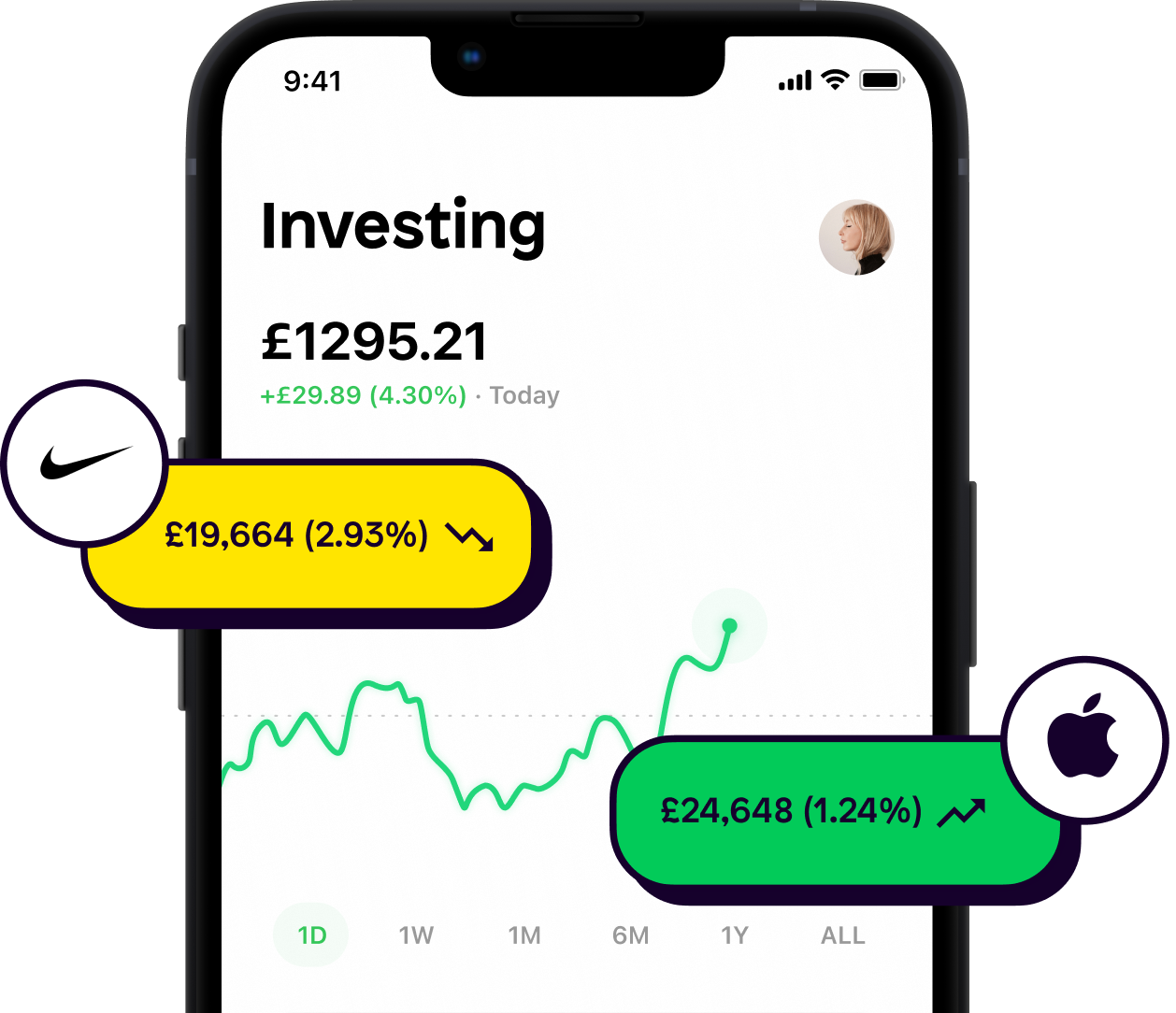However, after 10 years of uninterrupted growth, this was the second quarter in a row Netflix’s numbers dipped. When the company first announced subscriber losses back in April 2022, the news sent Netflix stock down 35% and wiped $50 billion off the company’s value in the process! 🤯
So, why do people no longer want to continue watching? And is Netflix’s reign as streaming king under threat?
Price hikes
In March 2022, Netflix announced it was increasing its prices (again 🙄). For UK subscribers, this saw prices go from:
£5.99 to £6.99 a month for the basic package
£9.99 to £10.99 a month for the (most popular) standard package
£13.99 to £15.99 a month for the premium plan
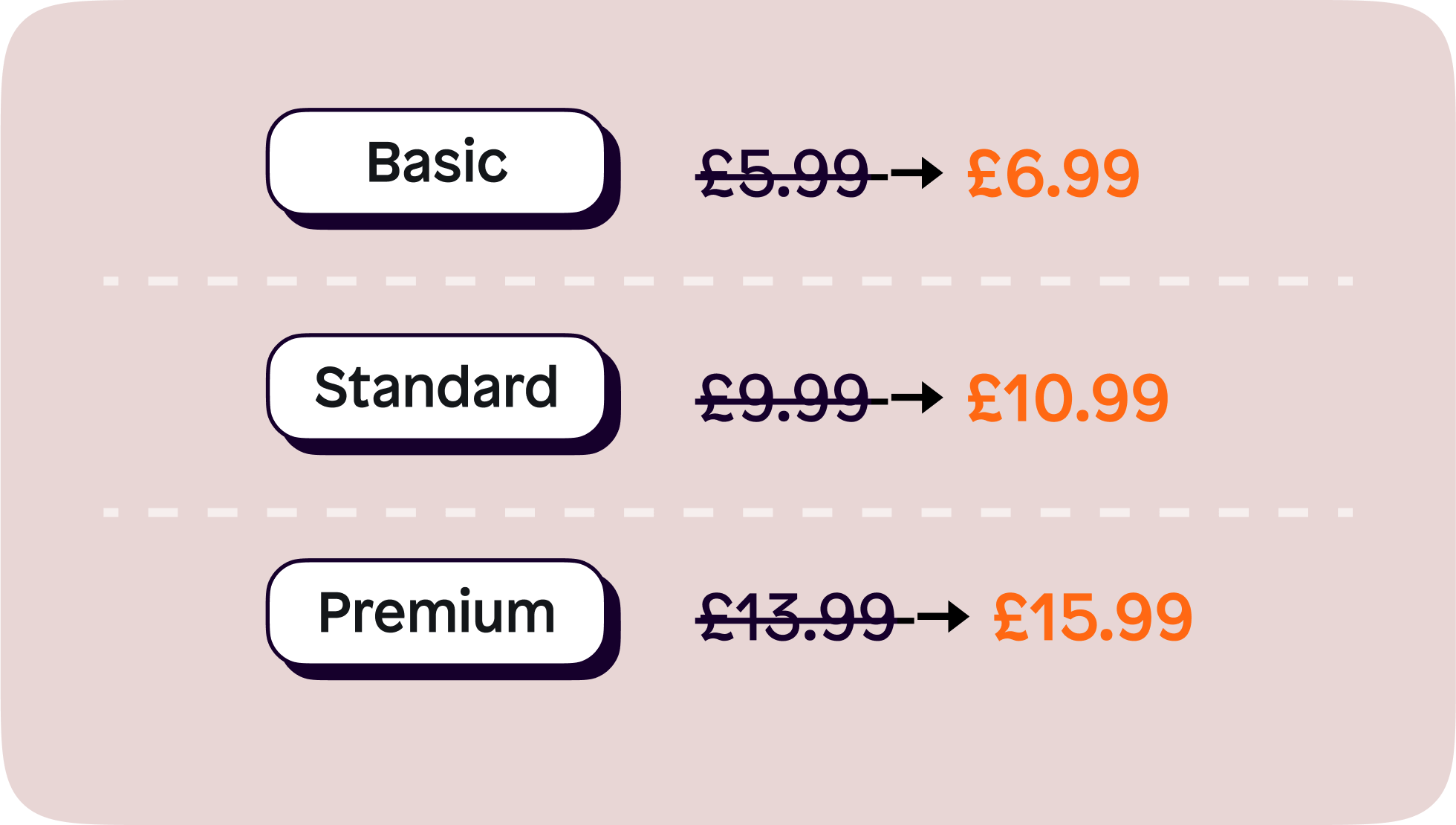
There was a similar story in the US, as the standard plan went up to $15.49 per month (from $13.99) and the premium plan went to $19.99 per month (from $17.99).
Now, this might not seem like a heavy hit to the wallet. But with the cost of living crisis causing more and more people to tighten their purse strings, Netflix would’ve become an unaffordable (or simply unnecessary) luxury for many.
In North America alone, the increase led to 600,000 subscribers cancelling their membership, either to leave the streaming life behind altogether or join a cheaper competitor. Standard package prices elsewhere come in at:
£8.99 / $8.99 for Amazon Prime
£7.99 / $7.99 for Disney+
£4.99 / $4.99 for Apple TV+
Suspension in Russia
At the start of the Ukraine conflict, Netflix – like many companies – took the moral high ground and stopped its activity in Russia. While this was good from a brand POV, it did cost the company 700,000 subscribers in one fell swoop.
Netflix has now paused all projects and acquisitions in Russia, including four ‘originals’ it had in the works. Before withdrawing from the country, the company had already refused to carry 20 Russian free-to-air propaganda channels that it was required to host under Russian law.
Russian Netflix users filed a class-action lawsuit against the company in retaliation, saying that suspending its service was “a violation of Russian users’ rights”.
The war in Ukraine has also had a knock-on effect in the West. The conflict led to oil – as well as food – prices skyrocketing, which has contributed to the huge jump in energy costs we’re seeing on these shores and elsewhere.
As the cost of living increases, budgets get tighter. And when budgets get tighter, entertainment is usually one of the first things to go. Because, let’s be real: keeping up with the latest Selling Sunset doesn’t matter too much if you’re struggling to put food on the table or pay your electricity bill.
Losing content
For a long time, Netflix was the only serious player in the streaming game. But this is the era of the streaming wars. So many studios have their own platforms now, and they’ve been taking all their content with them.
Over the last two years, Netflix has lost a lot, if not all, of its Disney, Warner Bros, Paramount and Fox content, and it’s set to lose even more. It’s been reported that Breaking Bad could be breaking ties with Netflix in early 2025.
While the company has invested billions in creating original content to replace these losses – and heavy-hitters like Stranger Things have stopped a lot of subscribers jumping ship – many people just want to watch and rewatch their favourite TV classics.
Netflix is still the streaming king with 220 million subscribers, but the competition is catching up. If the company doesn’t play its (house of) cards right, it could lose its crown in the next few years.
Can Netflix stop the rot?
Hmm. The best answer we can give you is a big, fat maybe.
In April, Netflix announced it was launching a cheaper, ad-supported subscription plan in partnership with Microsoft. This is set to launch next year, but there’s currently no information about how much this will cost or what it will include content-wise. There’s also a big question mark over whether people will be willing to put up with adverts in exchange for lower subscription fees.
Although Netflix lost nearly one million subscribers in Q2, the streaming giant isn’t expecting that trend to continue. In fact, it’s projecting it will add one million subscribers in Q3, between July and September. Time will tell.
So, what do you think? Are we watching Netflix’s reign come to an end? Or is this just a small bump in the road?
Join us!
Ready to join the Shares community? Download the app now.
As with all investing, your capital is at risk.
Shares is a trading name of Shares App ltd. Shares App Ltd is an appointed representative of RiskSave Technologies Ltd, which is authorised and regulated by the Financial Conduct Authority.


